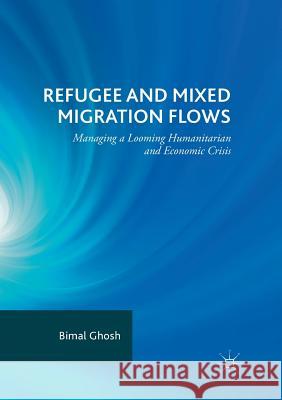Refugee and Mixed Migration Flows: Managing a Looming Humanitarian and Economic Crisis » książka
topmenu
Refugee and Mixed Migration Flows: Managing a Looming Humanitarian and Economic Crisis
ISBN-13: 9783030091880 / Angielski / Miękka / 2019 / 266 str.
Kategorie:
Kategorie BISAC:
Wydawca:
Palgrave MacMillan
Język:
Angielski
ISBN-13:
9783030091880
Rok wydania:
2019
Wydanie:
Softcover Repri
Ilość stron:
266
Waga:
0.34 kg
Wymiary:
21.01 x 14.81 x 1.5
Oprawa:
Miękka
Wolumenów:
01
Dodatkowe informacje:
Wydanie ilustrowane











